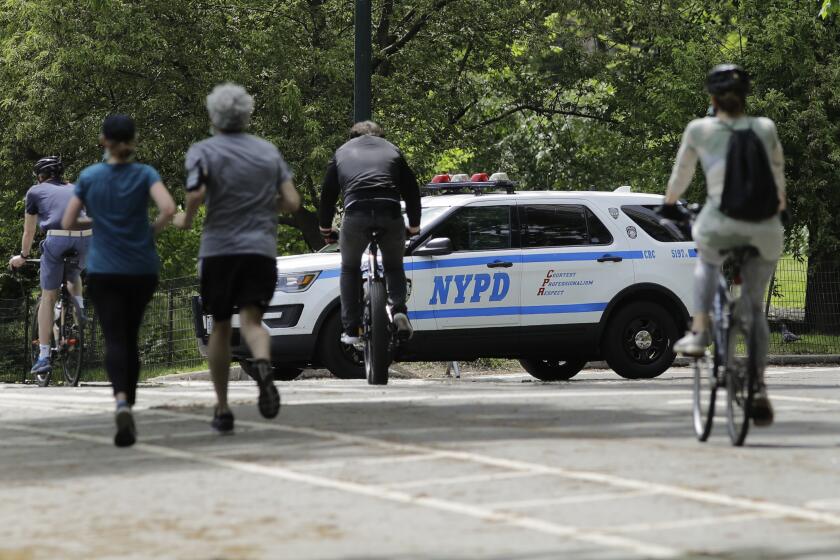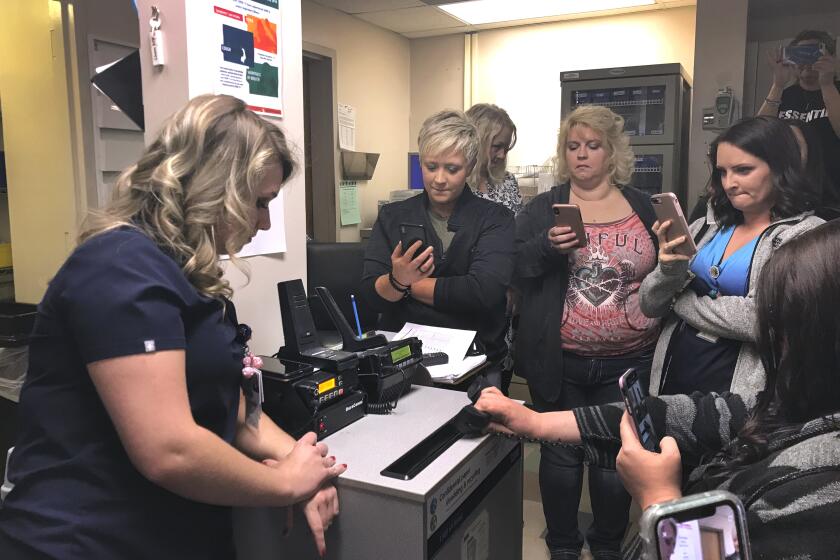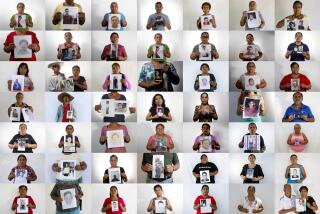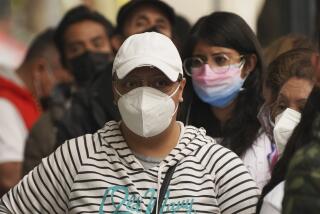How many people are dying of coronavirus in Mexico? It’s hard to say
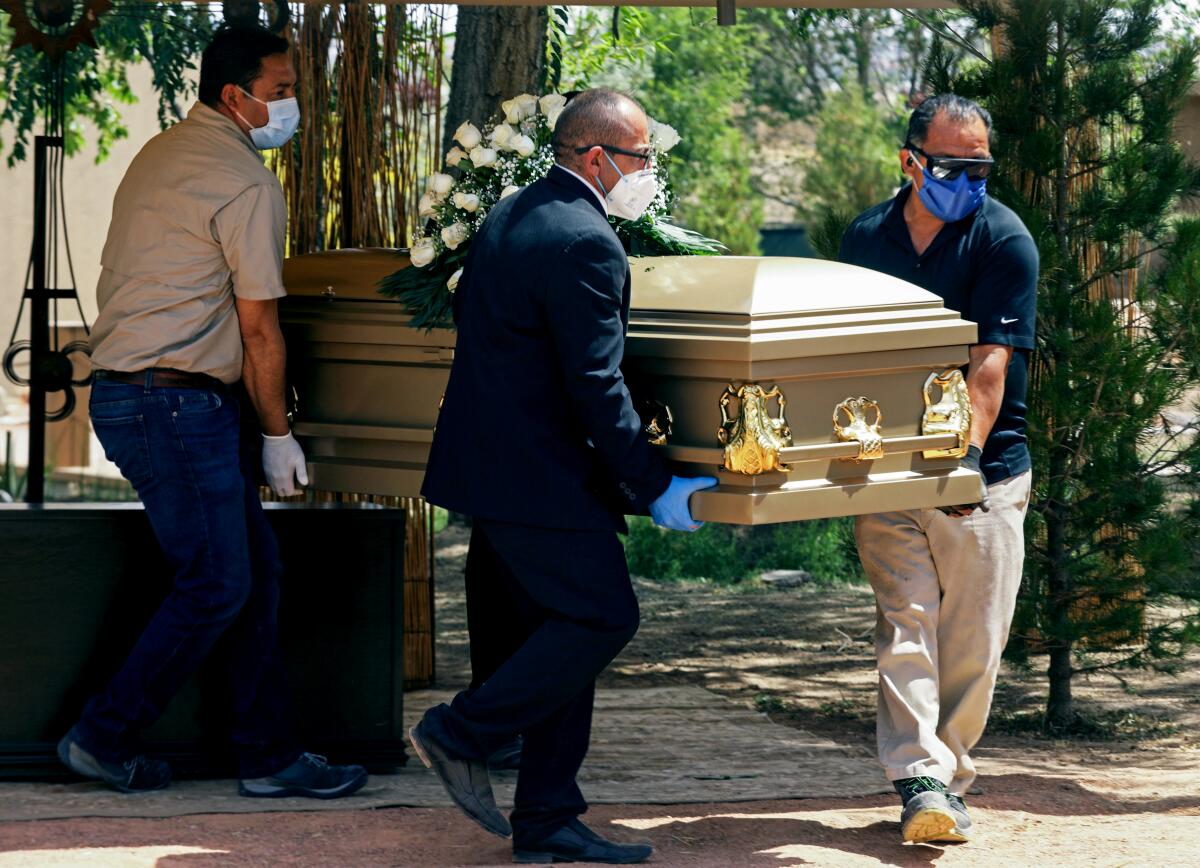
- Share via
MEXICO CITY — In cities across Mexico, morgues are full, funeral homes are jammed and crowded hospitals are turning patients away.
“My father is in a black bag in the back of that brown hearse,” said Gabriela Jacomé, a 43-year-old house cleaner waiting outside the San Nicolás Tolentino cemetery in Mexico City on a recent morning.
Vehicles carrying COVID-19 victims were gridlocked at the entrance along a main drag marked with yellow signs warning: “High risk of contagion!”
“We have to wait outside for hours to get in to pay final respects,” Jacomé said.
Such scenes are difficult to square with the country’s official death toll: 4,767 as of Friday.
Government authorities have long acknowledged that many deaths are not counted because they have not been confirmed by testing, and just how many remains a mystery.
Gov. Andrew Cuomo urged lawmakers to put politics aside and focus on helping New York and other states receive funding from the federal government.
There are clues. The Los Angeles Times reviewed 120 death certificates provided by a worker at a crematorium in the northern border city of Ciudad Juárez.
A total of 63 listed “probable COVID-19” as the cause of death, and another 30 named pneumonia or other respiratory ailments often associated with coronavirus patients.
Only 12 listed COVID-19 as the confirmed cause, meaning that only those cases would become part of the official total — a possible undercount of 93 deaths.
The widespread belief that Mexico’s official death toll is artificially low — and the inability of the government to correct it — have become fodder for critics of President Andrés Manuel López Obrador as the country of more than 120 million begins to reopen its economy. He recently complained: “They suggest we are hiding the dead.”
Dr. Alejandro Macías, an infectious disease specialist who headed the country’s response to the swine flu epidemic a decade ago, said he had no doubt there is an undercount.
“I don’t think it’s a question of bad faith,” he said. “But the official figures aren’t complete.”
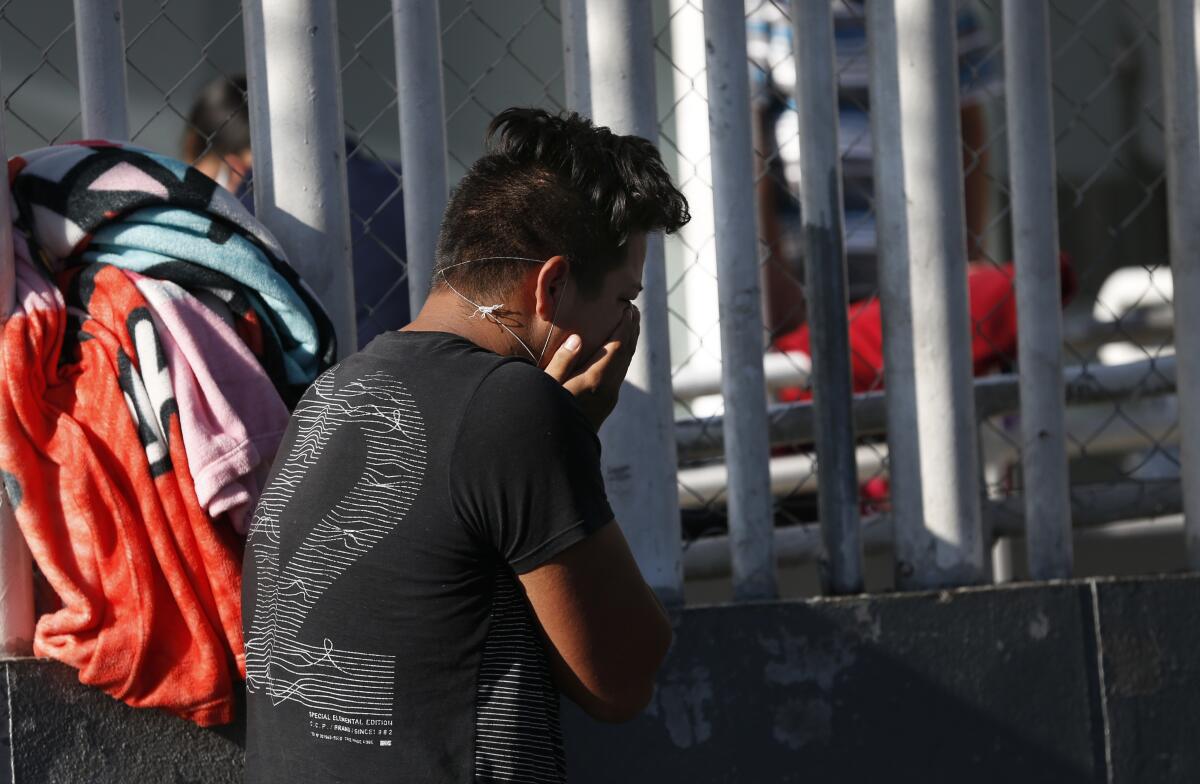
Health authorities in three northern border states — Baja California, Tamaulipas and Chihuahua, where Juárez is located — have also challenged the government’s count.
“The official numbers are very low, according to what we are seeing and experiencing,” said Dr. Pablo Villaseñor, who treats coronavirus patients at the General Hospital in Tijuana, across the U.S. border from San Diego.
Villaseñor said he and his colleagues have counted more than 200 coronavirus deaths at the hospital, one of several treating pandemic patients in the sprawling city of 1.8 million.
The official death toll in Tijuana as of Friday: 402.
Yet things have gotten so bad that the city’s morgue has run out of refrigerator space for bodies.
“They’re putting them in the hallway and covering them with tarps,” said a worker from a nearby hospital who was waiting outside the morgue with a body.
The employee, who spoke on the condition of anonymity because she was not authorized to talk to the press, had been there for hours because the facility was full.
Williamson Memorial Hospital did not treat any COVID-19 patients, but the coronavirus wreaked a devastating financial blow, causing ER visits to plummet.
In Mexico City, which has a population of 8.9 million and the most cases by far, officials said this past week that they were creating a special commission to determine how many people are likely to have died of COVID-19. As of Friday the official toll in the capital was 1,197.
“We have always said that there are more deaths than those reported daily by the government of Mexico,” the mayor, Claudia Sheinbaum, told reporters on Thursday.
Only people who have tested positive, while alive or after they die, are included in Mexico’s official count.
By comparison, the U.S. Centers for Disease Control and Prevention says COVID-19 can be included on death certificates if it is a “probable” or “presumed” cause of death, even without a laboratory diagnosis.
Mexico only began tallying “suspected” deaths linked to coronavirus in late April — and as of Friday the number stood at 462.
Most countries, including the United States, have struggled to count coronavirus victims, mostly because of a shortage of testing.
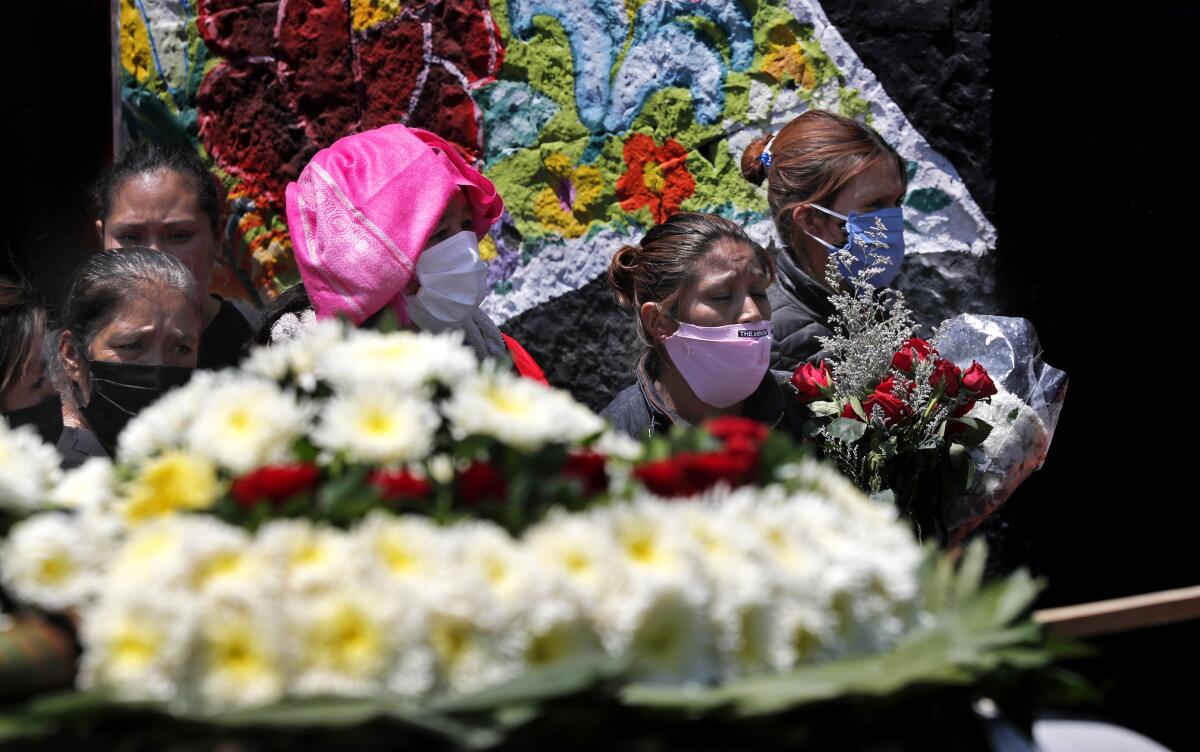
The testing rate in Mexico is among the lowest in Latin America at about 1,200 tests for every million people, according to the global statistics website worldometer.
The testing rate is more than 14 times higher in Peru and Chile, nearly seven times higher in El Salvador and almost three times higher in Brazil.
The U.S. rate is more than 27 times higher, at 33,000 tests for every million people.
Dr. Hugo López-Gatell, Mexico’s undersecretary of health and head of coronavirus policy, told reporters Thursday that the country had generally reserved testing “for cases sufficiently grave to be hospitalized” because that was all that was necessary to track to the spread of the virus.
He denied allegations that the budget-conscious administration of López Obrador — an early coronavirus skeptic who was relatively late to embrace social distancing — was purposely skimping on tests.
“We have money for tests,” López-Gatell said. “We have tests. More are coming.”
The official count of infections nationwide reached 45,032 on Friday. But those numbers exclude 16,450 positive tests conducted by private laboratories and still under government review.
López-Gatell told reporters earlier this month that the number of infected could be eight times the official tally.
In many countries, health investigators have been trying to assess the COVID-19 death toll by examining statistics of total deaths — regardless of cause — and comparing the totals in recent months to the totals during those months in past years.
The approach is not foolproof, but it can provide a reliable estimate of how many deaths are not captured in official tallies.
In Mexico, however, neither the federal government nor individual states have released statistics on total deaths this year as the coronavirus has spread across the country. The most recent national figures are from 2018.
In many parts of Mexico, the devastation of COVID-19 is evident enough without accurate official counts.
The crematorium worker in Juárez said he now typically retrieves 80 corpses a week from area hospitals — compared with around 25 before the pandemic.
“You pick up one and while you’re there, three more are delivered” to the morgue, said the worker, who spoke on condition of anonymity because he didn’t have permission to be interviewed.
The crematorium where he works is one of seven in the city of 1.4 million.
In the densely populated Mexico City neighborhood of Ixtapalapa, the line outside the San Nicolás Tolentino cemetery never seems to end these days.
Nora Martínez, a 41-year-old homemaker, stood in a crowd of flower-bearing mourners and cemetery workers in white hazmat suits and face shields dispensing squirts of hand sanitizer.
She had come for the funeral of her cousin, who a week earlier had lost his father. The two men, 35 and 60, ran a hardware store together.
COVID-19 was the suspected — though unconfirmed — cause in both deaths.
“We know of a lot of cases of people who already died,” Martínez said. “The truth is that I’m very afraid.”
Times staff writers McDonnell and Linthicum reported from Mexico City. San Diego Union Tribune staff writer Fry reported from Tijuana. Times special correspondents Gabriela Minjares in Ciudad Juárez and Cecilia Sánchez in Mexico City contributed to this report.
More to Read
Sign up for Essential California
The most important California stories and recommendations in your inbox every morning.
You may occasionally receive promotional content from the Los Angeles Times.
